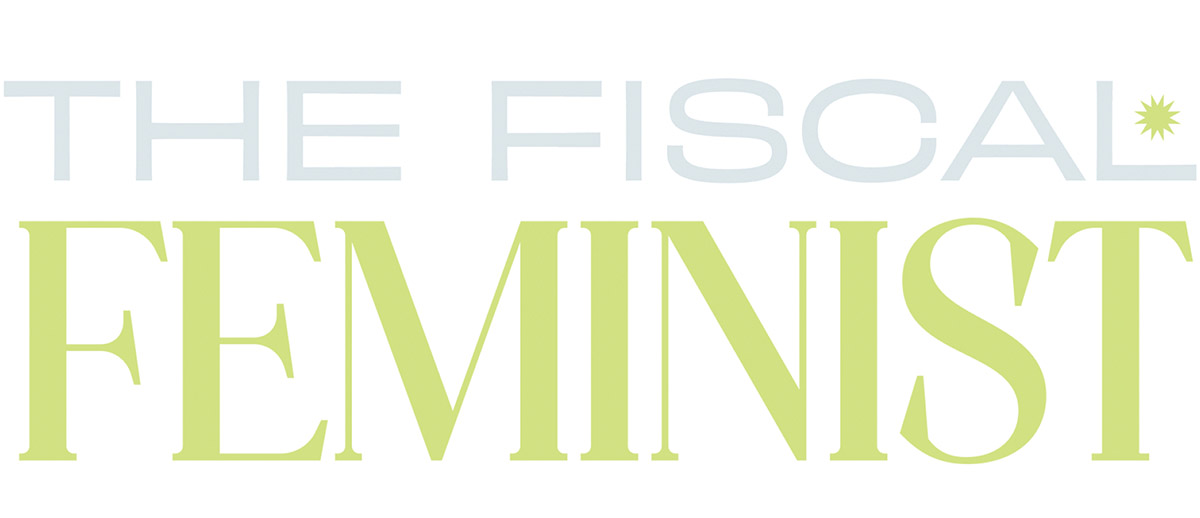“All Great Changes are Preceded by Chaos” -Deepak Chopra
There has been a lot of media coverage about the “Great Resignation,” the moniker that is being used to describe the economic upheaval of the pandemic and the reallocation occurring in the economy for both employers and employees. We are experiencing a disconnected employment environment resulting from the pandemic and many are reassessing their career selections by choice or necessity.
Women have been particularly affected by the upheaval from the pandemic and many have left the workforce and frequently not by choice. According to The Washington Post, in January 2020 before the pandemic, “For just the second time, women outnumbered men in the U.S. paid workforce, with their new majority buoyed by fast job growth in health care and education over the past year, as well as the tight labor market.” Progress was being made, but now women must deal with the fallout from the pandemic.
There has been some job recovery for women in 2021, with the August 2021 unemployment rate for women at 4.8%, but it has been slow progress, and women’s participation in the workforce remains well below pre-pandemic levels. According to the National Women’s Law Center September 2021 report, as of August 2021’s rate of employment for women, women will need almost 9 straight years of job gains at that rate to recover the jobs lost since February 2020!
Further, reported unemployment rates do not include people who have left the workforce entirely –these people are no longer counted as unemployed. The women’s labor participation rate of 57.4% in August 2021 remains well below the pre-pandemic participation rate of 59.2% in February 2020 and it has not been as low since December 1988!! If the women who have left the labor force since February 2020 were included in the unemployed, women’s unemployment in August 2021 would have been 6.9%.
Why are Women Dropping out or Reassessing?
During the pandemic, the domestic burden of caring for children and relatives and homeschooling of children has fallen predominantly on women which is widely believed to account for the record number of women departing the workforce. According to a recent study from Washington University in St. Louis, the pandemic placed a heavy strain on women’s work with enduring consequences. The research emphasizes the herculean demands placed on women “who are expected to work like they don’t have children, and raise children like they don’t work.”
Covid exposed the many weaknesses that were inherent in the labor market that had been ignored when business was good, and the economy was robust.
Many women are burned out and exhausted from their ongoing work and family responsibilities, essentially working the “double shift” with very little support which was greatly exacerbated during Covid. Women in frontline jobs with lower wages have had to choose between their careers and providing child-care.
Further, research also reveals that there is measurable discrimination against mothers in the job market for both college-educated women in managerial roles and women in low-wage roles. Callback rates were much lower for mothers than for childless women. In low-wage sectors, the callback rate for mothers was 21.5% compared to 26.7% for childless women, and in the professional sector, the callback rate was 22.6% for childless women compared to 18.4% for mothers.
Finally, many professional women have attributed their exit from the workforce to non-inclusive behavior such as discrimination, pay gaps, and toxic work environments which became more apparent during the Covid disruption in the workplace.
This exodus by women from the workplace is a real tragedy, because workplaces, families, women, and the economy would all benefit from continued progress for women in achieving greater workforce participation. A Brookings Institute study estimated that if women had the same participation rate as men in the workforce, the gross domestic product would increase by 5%! Women bring new and different skills into the workplace which enhances macroeconomic growth not only through increased productivity but increasing overall wage levels for both women and men.
What can we do to change this?
There is no panacea but there are several solutions that can be employed on a macro level and an individual level.
Big-Picture Changes
On a macro level, companies need to take steps to implement change. Companies are key players in instigating change to address the challenges that women face. When choosing a place to work, look for companies that have favorable work policies and try to address a sustainable work-life balance and flexible work options. If company leaders are modeling flexibility in their lives and careers that is an encouraging sign. Investigate if company performance review metrics are based on performance and not when, where, or how many hours are worked. During the pandemic, many companies are offering parenting resources, mental health counseling, and paid time off for homeschooling demands. For example, Adobe has given their managers the tools to make flexible schedules for their employees the new norm. Be informed and understand the resources that your company or a potential employer has to offer you. Sometimes these policies aren’t effectively communicated to employees so be proactive and ask questions.
We have a responsibility to be informed and to exercise our vote for change in policies that will improve workplace policies for women, support for working parents and wage transparency.
Intentional Individual Actions
On an individual level, we need to be purposeful and intentional in our actions. In my opinion, this is especially true in our career choice and development. Do you want to control your career or would you rather it to control you? This may be a time of reinvention for many women who are striving for better work-life balance, greater flexibility, parity, and inclusion in their employment and career. It is okay to reassess, this is a good thing and is the seed of growth. Sometimes we need to take a beat to figure out how to resolve all the demands on our time and still have a meaningful and sustaining job.
The pandemic shined a spotlight on just how vulnerable many women’s jobs were to an unexpected event or a recession. Having a profession that is resilient to recessions will ensure your financial security. No job is 100% recession proof, but some careers are better than others in not being eliminated during hard times. Recession-proof professions include medical professionals, legal professionals, accountants and auditors, IT workers, pharmacists, actuaries, veterinarians, grocery store workers, elder care workers, mental health professionals and social workers.
STEM (science, technology, engineering, and mathematics) professions remain great career choices for women. These fields are currently dominated by men, but that doesn’t mean it’s hard for women to get jobs in those fields. In fact, many companies want to hire and keep qualified women for STEM jobs. Women should not be put off from engaging in the STEM professions. Explore companies with female-friendly policies and educate yourself on how best to communicate. Not all STEM fields are dominated by men, with some fields having an equal mix of men and women or women having a higher representation, such as accountants and auditors, registered nurses, clinical laboratory technicians, biological scientists, and database administrators.
Maybe a regular job isn’t how you want to experience work and you have an entrepreneurial spirit. More and more women are choosing entrepreneurship to escape the gender gaps in the traditional workforce altogether. Women are motivated to create their own businesses from a combination of necessity, flexibility, and opportunity. Necessity entrepreneurs can’t find quality employment, so they decide to start their own business to increase their income. Flexibility entrepreneurs start their own businesses because workforce policies do not accommodate their caregiving responsibilities, or they desire more control over when and where they work. Opportunity entrepreneurs see possibilities in the market that they want to exploit. Many women start their entrepreneurial ventures by being “sidepreneurs” which means they begin with their venture being a side hustle until it becomes viable.
Keeping your job skills honed and fresh is also important for career growth during economic stability and uncertainty. Our communication, negotiation, leadership, creative thinking, time management, self-motivation, productivity, and networking skills are as important as our technical skills. Continually audit your skills and determine where there is room for further development of transferable skills. Stay ahead of the curve by being current with your relevant skills by reading relevant articles, newsletters, and pursuing continuing education. Keep your digital presence fresh by updating LinkedIn, your website, or your social media. Network with leaders in your industry even when you are not looking for a job. Maintaining relationships and keeping your finger on the pulse of your industry can unlock future opportunities for you. Networking is probably the most key recession-proof job skill. In addition to networking, conducting informational interviews to learn about other industries, companies, and roles, is an effective way to learn about new options without the stress of a formal interview.
Making a Career Change
If you decide that you do want to pursue a career more in line with your passions and goals (and recession-proof), it’s often worth it. Changing careers is never easy or immediate especially if you have been working in a certain field for a long time. It can be intimidating and frightening to contemplate making a big change. But have faith and keep your resolve because the right choice is there for you. The following actions can help you to effectuate the change:
- Delegate or prioritize the responsibilities you would like to handle while giving yourself time to develop outside of the workplace.
- Embrace the change. This “in-between” your current situation and a future that is still uncertain may be disconcerting, but this unsettled stage is a necessary part of the journey.
- What are the short-term goals that you can achieve that will add up to your long-term goal?
- First things first: Do a little soul-searching and ask yourself, “why now?” “Find out what’s actually driving your decision to switch careers,” says certified professional career coach, David Wiacek.
- Pursuing further education can facilitate a pivot into a new industry and will make you a competitive candidate.
- Create an advisory board for your career—your board could include a mentor, someone in your industry, or a coach.
- Consider pursuing your passion as a side-hustle as you build up your experience in that area enough to make a permanent change.
- Manage your expectations.
Keeping the faith!
Reinvention and achieving new milestones are possible for all of us. I read a post on LinkedIn by a woman who described her journey from unemployment to getting a full-time position as a Customer Engineer at Microsoft. She posted: “I applied for over 150 jobs. Doubt, fear, insecurities most definitely started to build a cloud over my head. But I DID NOT GIVE UP! I had FAITH that I know change will come as long as I work hard, turn my negatives into positive…and keep pushing through.”
Each of us has ups and downs along the way but it is how we navigate them that counts. I applied for over 80 jobs during my reinvention period and experienced A LOT of rejection. Employers weren’t clamoring to hire a woman of a “certain age” regardless of my experience. During my very uncertain period, I had no idea how it was all going to turn out, but I knew that I had the drive, capabilities, and desire to find a career I was passionate about that would be the building block for my reinvention and salvation at 54 years of age!
We women are strong and capable so we must remember that we can make the changes in our lives to establish our financial independence – we just have to be determined and use all the tools available.
The Upshot
The pandemic has given many women a cause to reevaluate their work situation. And women collectively still have an uphill battle to achieve gender parity in the workforce and as businessowners.
But we have come a long way; we have clarity on what is holding us back, and we have more women mentors to look to for inspiration and guidance. It is so important that we continue to push forward, exercise our vote, raise our voices, and be intentional and strategic in our career choices so as not to be vulnerable. We can’t be lackadaisical; time is of the essence. If every woman commits to having confidence in herself, believing in her capabilities, creating an intentional strategy, and making decisions from self-belief rather than fear, things will change. Productive, financially independent, and empowered women are not only good for women, but for the economy, families, and children. Everybody benefits.
Yours in Fiscal Sisterhood…
Kimberlee Davis
The Fiscal Feminist
Sources:
columbian.com
washingtonpost.com
forbes.com
Brookings Institute
catalyst.com
McKinsey Women in the Workplace Study 2020
Patrick Ishizuka
nwlc.com
firstround.com
northwestern.edu
nytimes.com




